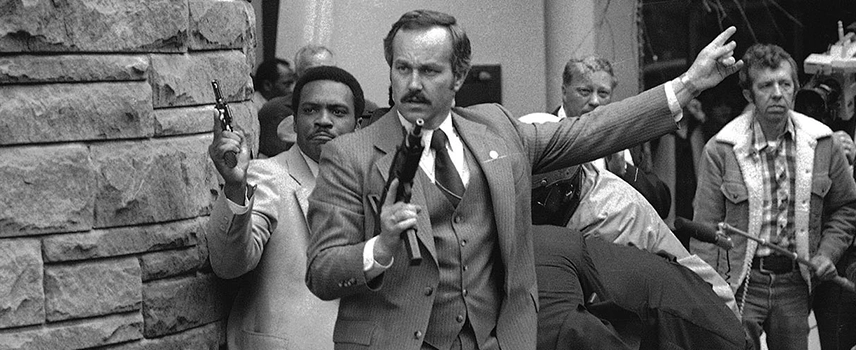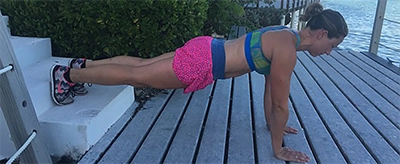How to become a Bodyguard
“What you need to know about becoming a Bodyguard in the UK”
by Virginie Roux | 12th October 2021

How do you become a Bodyguard?
A bodyguard, also known as a close protection officer, is responsible for the protection of a person or group of people including ultra-high-net-worth individuals and celebrities, against physical threats. As the safety of the principles is at stake, the role of a bodyguard requires rigorous training and a licence.
When the work of a Bodyguard comes into mind, it’s hard not to think of Kevin Costner in “The Bodyguard” movie. However, the reality behind what the job involves isn’t as glamourous as what people make of it. Being a Close Protection Officer is challenging and requires total commitment, with long working hours and little time for themselves. In a lot of cases, clients demand close protection 24-hours a day and 7-days a week, as the security of High Net Worth Individuals isn’t to be taken with a pinch of salt. Because of their high profiles, they face permanent risks, so they need protection at all times.
Thus, the primary role of a Bodyguard is to accompany and protect clients against any threats, including; kidnapping, stalkers, over-enthusiastic fans and terrorists to name but a few. The responsibilities of a Close Protection Operative are varied and plentiful to ensure the security of the person they escort (often referred to as the Principal). The job entails a lot of planning and control: checking location before arrival at a venue, establishing risk assessments and planning routes to eliminate any potential dangers. The operative can also have a double function; acting as a Security Chauffeur for the Principal. Although, in many cases permits and licenses are required to carry out this activity.
Bodyguards look after a client in a low-risk environment, or they can choose to operate in hostile locations where the level of risk is very high. So, if you feel up for the challenge of becoming a bodyguard, here is how to pursue your career in this field.
What are the requirements to be a bodyguard?
I. Bodyguard Training
Close Protection is regulated in most countries and requires the completion of a course with an accredited training centre, to obtain the relevant qualification. To excel in this industry, we would always recommend people who are under 25 years old to join the Military or the Police prior to training as a bodyguard, as this can be an excellent foundation and increases your chances of getting work when you are qualified. Experience in the Army would open your scope of opportunities, by enabling you to carry out work in hostile environments when you are certified.
1.Bodyguard Certification
In the UK, anyone who wants to work as a Close Protection Operator must first obtain a certificate after completing their Close Protection Course; the Level 3 Certificate for working as a Close Protection Operative within the Private Security Industry.
2.Close Protection course
The course content is diverse and will teach you essential competences such as carrying out close protection, establishing risk assessments, planning operations and routes, conducting reconnaissance and search, managing incidents and using surveillance techniques. Certain course providers will also expand their offer, providing firearms, driving and self-defence training, which are useful competences to have on your CV.
On the other hand, we would strongly advise you to do some research before selecting a training provider. Cheap isn’t always a synonym of quality, certain courses can be expensive, but their recognition will make the difference on your CV when applying for a job as a Bodyguard.
3.SIA Close Protection Licence
Once you are certified, you will have to apply for a SIA close protection card with the Security Industry Authority, to allow you to operate as a Bodyguard in the UK. To obtain it, you will have to supply your Close Protection Certificate, as well as a certificate in First Aid and a Criminal Record Check.
The SIA close protection card only allows you to work in the UK as a bodyguard. Other countries have their own licence, in France for instance, bodyguards in France would need a professional card issued by CNAPS, the local regulator.

II. Bodyguard Fitness
Bodyguard Height - Does size matter?
“It’s not the size that matters… it’s how you use it” - The Hitman’s Bodyguard
When working as a Bodyguard, your body will be severely tested physically and mentally at times, so it is important to stay in great shape and maintain your physical fitness to a satisfactory level. It’s all well and good to look smart in a suit with glasses on, but your fashion sense does little if you can’t move and react fast, in a situation where danger is at its peak. Most of our Executive Protection Agents follow a very strict workout routine, with strength training and cardiovascular exercises.
Besides, a Bodyguard should not be hired for his/her size as the like of certain celebrities’ bodyguards, who could do with losing a few pounds! They may not be fit to act fast enough, and will stand out from the crowd, when they should blend in the background to avoid attracting attention to themselves and the person they are looking after.
Additionally, some security firms who recruit Close Protection Officers may ask you to take part in a fitness test as part of their recruitment process, so make sure that you are physically operational.
III. What are the qualities that a Bodyguard must possess?
A competent Close Protection Operative needs to be able to adapt to different situations, remain calm and respond quickly when facing potential danger. To do this, situational awareness is key!
Moreover, a professional Bodyguard should have a great understanding of Etiquette for Bodyguards, excellent communication and social skills to effectively communicate with Principals and their connections, as this could affect their image. The command of a foreign language, can also prove to be very useful, opening up other avenues of work, and may be required if you are protecting a foreign VIP, or if you must travel for work.
Finally, trustworthiness, integrity and discretion are three qualities that are essential. Principals will be spending most of their time with their Bodyguard, so confidentiality is vital. You should never reveal private information about your clients to anyone, as it could put their life and reputation at risk. When clients want to hire a Bodyguard, they want the very best!
IV. The Close Protection Circuit
“It’s not what you know but who you know!”
Building a vast network of bodyguards and security professionals will come in handy to find work, and will help you make a name for yourself in this industry. So, be very selective when you pick your training provider, as it will be an effective way for you to make connections with instructors and other people on the course. They may put your name forward when one of their contacts is looking to fill up a position.
1. Close Protection World
Additionally, join forums (Close Protection World) or groups on social networks where job ads are often posted, and take part in security events to connect with people on the ‘Circuit’. Having your full CV on the likes of LinkedIn is very important as this also allows you to engage directly with recruiters and firms within the industry.
2. Close Protection jobs
Once you are qualified, you can apply for a Bodyguard position with Intelligent Protection International Limited. We are regularly posting new exciting job opportunities online on our Bodyguard Jobs page.